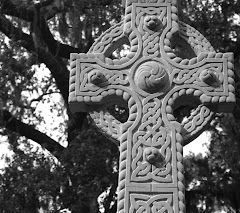SUMMARY
The Church was founded by God from the very beginning. The roots of the Church and her mission are found in OT soil. Walter Kaiser points out that, in the early chapters of Genesis, we find three crises that fell on humanity as a result of their sin: 1) the Fall, 2) the Flood, and 3) the Failure of the Tower of Babel. However, with each crisis came God’s promise – His blessing. And with each blessing, the foundation of the Church was being laid.
One of the foundational blessings of the Church was the blessing given to Abram in Genesis 12:1-3. “The LORD had said to Abram, "Go from your country, from your people and from your father's household to the land I will show you. And I will make you into a great nation and I will bless you; I will make your name great, so that you will be a blessing. I will bless those who bless you, and whoever curses you I will curse; and through you all the families of the earth will be blessed. So Abram went, as the LORD had told him …”
Abram, and through him Israel, was to be the conduit through which the world would be blessed. Christ is the blessing. And therefore the Church of Jesus Christ, the new Israel, must likewise be the conduit of blessing to all the peoples of the earth.
POINTS TO REMEMBER
* We are looking at what the Church is. And when we look at the big picture, we see that the Church is 1) FOUNDED BY GOD, 2) FULFILLED IN CHRIST, and 3) FORMED BY THE HOLY SPIRIT.
* "The nature of the blessing on the nations is that God has revealed himself through Abram’s family. The law was given through them; the prophets were from among their number; Scripture was written by them; and their history became a public record of God’s attributes in action. Then to climax it all, his own Son came through them and revealed the Father and the kingdom through his life and a plan of salvation for the world through his death. In Abram all the nations of the earth were blessed as they were shown what God was like and as the means were provided for them to become justified, reconciled to God, and forgiven of their sins” (John Walton, NIVApplication Commentary, Zondervan, 2001, p. 402).

* Genesis 12, is preceded by genealogies – lists of fathers and sons and who begat who. The genealogy ends however in barrenness. Genesis 11.30 states, “Now Sarai was barren; she had no children.” The line of promise had literally come to the end of the line. The future looked barren; the situation looked hopeless. But in his commentary on Genesis, Walter Brueggemann comments, “The marvel of biblical faith is that barrenness is the arena of God’s life-giving action.” God spoke His Word into void and the universe came into existence. Likewise God speaks His Word into the barrenness of the human condition and brings about new life. God took an old, barren couple, spoke His promise to them and through them poured out the blessing of His knowledge and salvation to all the earth. God spoke into our barrenness and now He calls us to speak His Word into the barrenness of others.
* God gave Abram a command and a promise. Which one was harder for him to accept? I think it might have been the promise. For the promise called for a clear decision and radical faith. The command called Abraham to leave behind people, a place and things. But the promise called Abraham to leave behind fear and doubt and to see things, not as they were, but as they would be. God’s calling to Abraham required him not simply to give up things, but to give up himself.
* The mission of the Church is dependent upon faith. Without faith, there is no mission. Without faith there are no missionaries. Before we can commit to be a part of the mission of the Church, we have to believe the promise. Do you believe it?
SCRIPTURE TO CONSIDER
Crises and Blessings - Genesis 3 // Genesis 6-9 // Genesis 11-12:3
Gospel in advance - Galatians 3:8-9
Ambassadors - 2 Corinthians 5:11-21
Real life - Luke 9:23-26

No comments:
Post a Comment